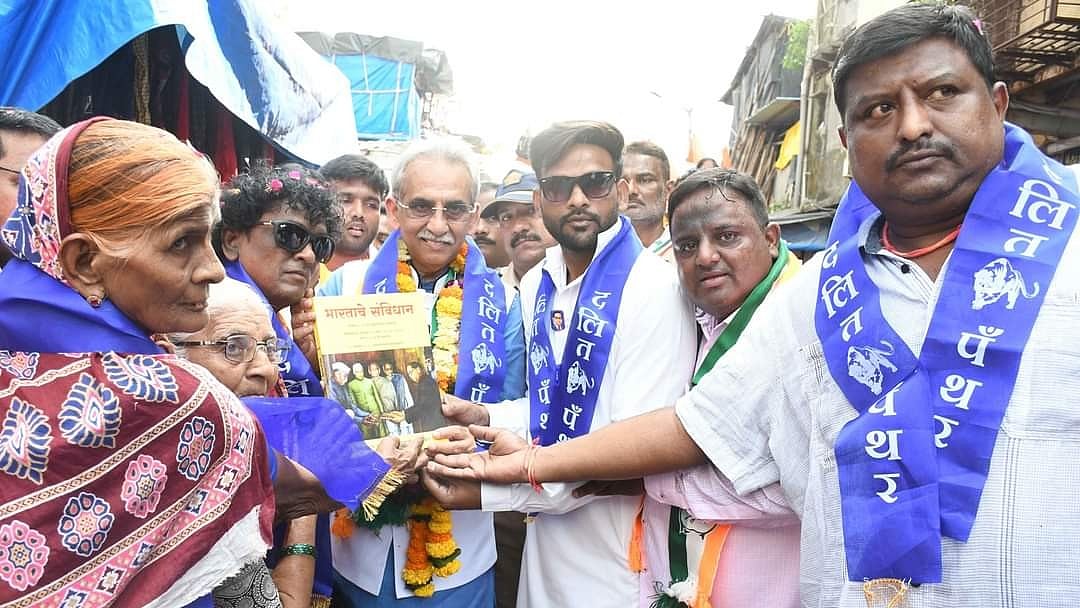Indian democracy seems to be hijacked time and again with large-scale defections and tacit support from the Election Commission of India (EC), with its questionable decisions given in different cases in the last few years. There have been several decisions of the EC, of late, which have been favourable to the ruling Bharatiya Janata Party (BJP) at the Centre and against political parties opposed to the BJP, across the country.
Almost every political party opposed to the BJP had made allegations that the EC was partisan and doing injustice to the Opposition.
The finest, most honest and most neutral Chief Election Commissioner of India was T N Seshan, who not only brought about several changes in the electoral process and introduced a Model Code of Conduct, but did not think twice while pulling up even the ruling party at the Centre or its candidates.
That is not the case in recent times, partly due to the manner in which the chief election commissioners and election commissioners have been appointed. In the absence of a set law or procedure for the appoint of individuals to these posts, the appointees have been bureaucrats, close to the government and willing to favour the BJP, when it comes to complaints regarding malpractices in the electoral processes during the general elections or elections to state assemblies. As such, the EC has repeatedly failed to be the watchdog of the electoral process, to make elections fair and free, and as a result failed to protect India’s democracy.
The EC is a Constitutional body and election commissioners are appointed by the President of India on the advice of the Prime Minister. The term of the CEC as well as the election commissioners is six years or till the age of 65 years, but in recent times all the appointees have had a far shorter tenure.
Section 6 of the Chief Election Commissioner and other Election Commissioners (Condition of Service) Act, 1991 states that names of only those bureaucrats are to be shortlisted who are in a position to complete a full six-year term. Yet, that condition has not been adhered to.
A shorter term for the election commissioners is to the advantage of the party in power, as a ‘non-cooperative’ incumbent would be difficult to remove if the appointment is for a longer duration. An election commissioner can be removed from office only by the President of India. This was the protection Seshan had; though he was not liked by any political party, all parties had to bear with him, notwithstanding the fact that as an officer of the Indian Administrative Service, he was among the most transferred officers since he refused to bow to the government during his service.
Neither the Congress, Bharatiya Janata Party nor any other political party that has been in power at the Centre has cared to work out the procedure for the appointment of the election commissioners, leaving it arbitrary probably to suit the party in power. The Law Commission of India had recommended that election commissioners should be appointed by a three-member committee comprising the Prime Minister, the Leader of the Opposition in the Lok Sabha and the Chief Justice of India, but that recommendation has still not been implemented.
A few cases were filed in the Supreme Court seeking reforms in the appointment of members of the EC. The Supreme Court gave its ruling on the petitions on Thursday and ordered that election commissioners shall be appointed by the President of India, on the advice of a committee comprising the Prime Minister, the Leader of the Opposition in the Lok Sabha or the leader of the largest opposition party in terms of numbers in the Lok Sabha, and the Chief Justice of India.
The Bench hearing the batch of petitions comprised Justices K M Joseph, Ajay Rastogi, Aniruddha Bose, Hrishikesh Roy and C T Ravikumar.
In its order the Bench stated that the order will remain in effect till a law is passed (for appointment of election commissioners) by Parliament. The court also made a fervent appeal to the Union of India/Parliament to consider bringing in changes to ensure the independence of the EC.
The observations of the court during the hearing of the cases, the first being filed in 2015, are noteworthy. At one stage, the court said that the EC has to remain aloof from all forms of subjugation by the executive, adding, “A vulnerable Election Commission would result in an insidious situation and detract from its efficient functioning.”
The court made strong observations regarding the “unrelenting abuse” of the electoral process, remarking, “It is said democracy can succeed only if all stakeholders work on it to maintain the purity of the election process, so as to reflect the will of people.” The court’s comment on the state of the media in the country should be an eye-opener. The court observed, “A large section of the media has abdicated its role and become partisan.” This is not the first time in recent times that the apex court has commented on the state of the media in the country. In the absence of any order, however, the erring media has ignored these comments.
The Centre will have to implement the order of the Supreme Court, though it may find ways to circumvent the order by introducing a law, the way the Congress government had done after the Shah Bano case. That would be more dangerous for democracy.
Even if the selection of the election commissioners is done by the committee to be set up on the orders of the Supreme Court, only the professional integrity and honesty of the commissioners and their subordinates will make the Constitutional body really effective.
The author is a senior journalist and media trainer. He tweets at @a_mokashi











